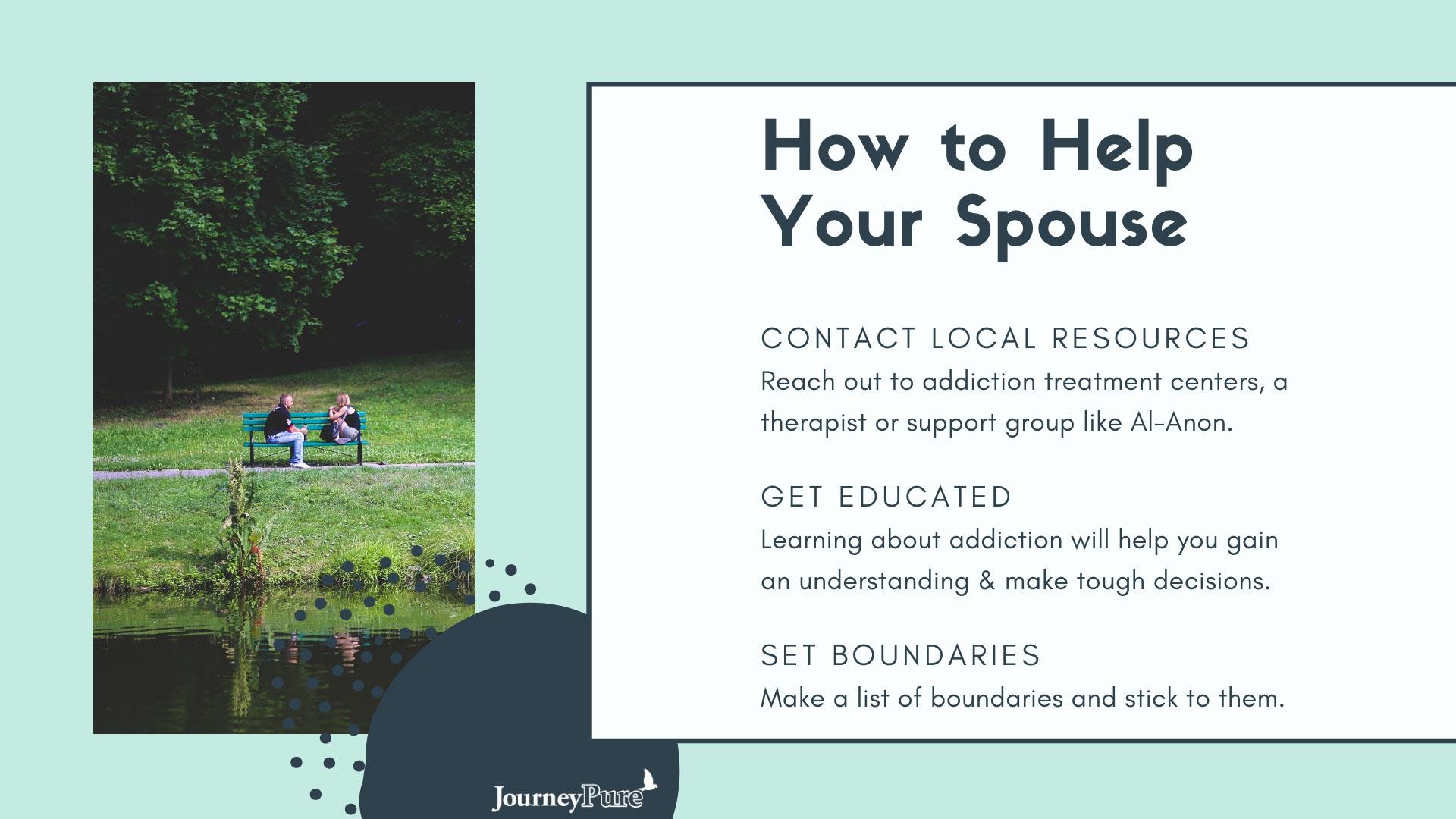Drug addiction has become one of the most prevalent public health problems in the United States, with millions of people abusing them on a daily basis. Marijuana, prescription drugs, opioids, and cocaine are some of the most commonly abused drugs in America, causing serious problems within the lives of many, including married couples.
Regardless of how mild or severe one’s drug addiction is, it will undoubtedly impact their marriage in ways that could possibly destroy it forever. Married couples in the midst of active addiction can easily feel as though there will never be a light at the end of the tunnel. They can feel detached from their spouses, lonely for what their relationship used to be like, and scared about what the future may hold. But, like most marriages, the survival of a marriage where drug addiction is present is founded in how dedicated the couple is to one another and themselves as individuals. Marriage is a team effort as is learning how to appropriately care for oneself on a personal level. Unfortunately, without intervention, many marriages where addiction is occurring end in divorce or separation. But, not every marriage ends up this way, as including treatment into your lives can help you rebuild a strong foundation that allows you to move forward.

Married to an Addict
No one ever wants to find themselves married to a drug addict because the disease of addiction can be so heartbreaking, overwhelming, and permanently life-changing. Watching your spouse struggle with drug addiction can put a massive strain on a marriage, as it prevents you and your spouse from working together as a team and taking care of one another properly. Millions of couples across the country have so much difficulty in their marriages due to drug addiction that the only viable option is separation or divorce. Whenever drug addiction is present, the dissolution of a marriage is always possible.
When married to a drug addict, there are several obstacles that you face on a daily basis. For example, key factors to a healthy marriage like trust and respect are often depleted or lost entirely when a spouse is addicted to drugs. The constant mistrust can lead to anger, sadness, loneliness, and resentment, all of which can erode at a marriage. As a result, communication can become ineffective or even combative, leading to frequent arguments and misunderstandings. Such chaos in a marriage can make healthy functioning extremely difficult, if not impossible.
It is a difficult concept to understand, but when your spouse is addicted to drugs, you are not well, either. It is an insurmountable expectation to think that you can go through each day unscathed and unaffected by your spouse’s drug addiction. And as much as you may want to think that you can preserve your wellbeing during your spouse’s active drug addiction, the weight of this disease can make that seem like an overwhelming ask.
Addiction recovery that’s built to last
Signs of Drug Use in Spouses
By the time you suspect that your spouse is using, you have probably already seen several behavioral changes in him or her that have forced you to consider what could be occurring. Drug addiction, in general, often causes the following behaviors to develop:
- Secretive behavior that includes being dishonest about how much is being used, how frequently, and when
- Socially isolating from others and/or withdrawing from previously enjoyed activities or hobbies
- Neglecting responsibilities at home, such as laundry, dishes, taking care of pets, etc.
- Slacking on good personal hygiene habits like teeth brushing, bathing, and wearing clean clothes
- Using money to buy drugs that were supposed to be for things such as groceries, household supplies, etc.
- Taking money from savings accounts, 401k’s, or other retirement funds without your knowledge
- Adopting deceitful behavior, such as asking for money for gas but instead using it to buy drugs
- Experiencing changes in temperament, sleeping patterns, and eating behaviors (e.g. sleeping or eating too much or too little)
- Falling behind at work, being disciplined at work, or being fired due to drug abuse
- Development or increase in symptoms of mental health conditions such as depression or anxiety
These are some of the baseline symptoms of drug addiction, however additional symptoms can develop based on what type of drug is being abused. For example, if your spouse is addicted to a stimulant like meth or cocaine, he or she may experience significant and sudden increases in energy, excessive talkativeness, and little need for sleep. Depressants, such as opioids, have the opposite effect, often causing detachment from one’s surroundings, sedated appearance, and increased need for sleep.

How to Help a Drug Addict Spouse
Helping your spouse end his or her drug addiction is the most important thing you can do if you want your marriage (and your spouse) to survive. You might not know where to start or what to do in order to help your spouse, which is completely normal. Lots of people who find themselves in a marriage where drug addiction is occurring do not know what to do. However, with the right information, you can get your spouse the help he or she needs, as well as preserve your marriage and your own wellbeing.
Contact local resources
The first thing you can do to help your addicted spouse is to reach out to local resources. Your community treatment center (if you have one) can connect you with professionals who can help you determine which path is most appropriate for your spouse. Support groups, such as Al-Anon, can also be extremely helpful at this time. There are meetings on a regular basis right in your town or neighboring towns that can offer you the support you need to maintain as much of your wellbeing as possible during this time.
Reach out to an interventionist
Interventionists are professionally trained in helping people addicted to drugs and/or alcohol accept help for their disease. If you do not know an interventionist or have one within your town, you can likely find one through a quick online search who can be of service to you. You may want to consider involving an interventionist if your spouse is highly combative, extremely dismissive, or if you and your spouse are not on good enough terms to have a real conversation about getting help.
Get educated
Quite arguably the most beneficial factor of the internet is that important information is available right at your fingertips. During this time when your spouse is addicted to drugs, learning as much about this disease as possible can be helpful in a number of ways. For instance, the more you read about addiction, the more you can begin to understand how it is treated so that you can take action on getting your spouse into treatment. You can also benefit from learning about the disease aspect of addiction. It is extremely challenging to separate your emotions from a loved one’s addiction, but being aware of how addiction causes the brain to function and in turn, your spouse to behave, can make things more manageable.
Set boundaries
It’s human nature to want to take care of someone who is unwell by doing whatever we can to make their situation easier. However, adopting this type of behavior for an addicted spouse will only add fuel to the fire. You will be of most help to your spouse by setting boundaries such as not allowing use in the home, taking over control of shared finances, refusing to help him/her out of a bad situation caused by his/her use, and putting your own wellbeing first (e.g. prioritizing your self-care). Boundaries are not easy to enforce, but when you apply them and uphold them, it can cut off the blood source to your spouse, pushing him/her closer towards accepting help.
Get Help Right Now at JourneyPure at The River
Dealing with addiction in a marriage is never easy. It provides several obstacles that can seem completely and entirely impossible to overcome. At JourneyPure at The River, we understand the challenges you are facing and can help both you and your spouse get on the right path.
If your spouse is struggling with addiction, reach out to us right now. We can offer the support you and your spouse need to get the appropriate level of treatment and begin living a life free of active drug addiction. Do not waste one more day. Call us today.
